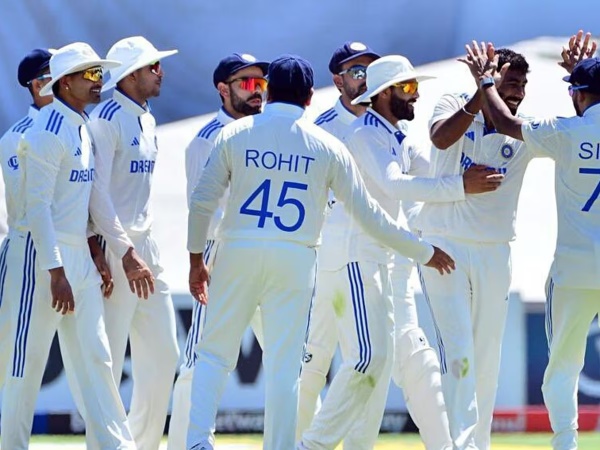views : 762
4 Min Read
India vs England Test series: Will the change in rules improve the performance of Indian cricket team?
The Board of Control for Cricket in India (BCCI), the country’s apex cricket governing body, has been actively addressing concerns following India’s disappointing 3-1 loss to Australia in the recent Border-Gavaskar Trophy. This series defeat marked the first time in a decade that India relinquished the prestigious trophy, a result that has raised several questions about the team’s current form and strategy. In response to the setback, the BCCI convened a review meeting on Saturday, December 11, where key figures in Indian cricket, including Chairman of the Senior Selection Committee, Ajit Agarkar, team captain Rohit Sharma, and head coach Gautam Gambhir, were present. The meeting was seen as an essential step in evaluating the performance of the team, particularly following a series of underwhelming displays in the longer format.
BCCI taking some stern decisions ahead of India vs England Test series
The discussions focused not only on the team’s recent struggles but also on the road ahead, including personnel changes and strategies for upcoming series. With a string of disappointing performances in the Test arena, questions surrounding the leadership, player selection, and overall team dynamics were reportedly key points on the agenda. The outcome of this meeting is likely to shape India’s approach to future Test matches, with an emphasis on revitalizing the squad and reaffirming its dominance in international cricket.
In response to India’s disappointing performance in Australia, the BCCI is reportedly set to introduce new guidelines aimed at improving player discipline and focus during tours. The new rules target several aspects of players' off-field conduct, with an emphasis on minimizing distractions and maximizing team cohesion. One of the key changes involves restrictions on players' family members. Under the new guidelines, cricketers’ wives and families will no longer be allowed to stay for the entirety of a tour. Instead, they will be permitted to visit for a maximum of two weeks during a 45-day tour. The BCCI hopes this will help players remain focused on their cricket without the added pressures of long-term family stays.
Additionally, the new rules dictate that all players will be required to travel together on the team bus, with no exceptions for those who may have previously traveled separately. This move is intended to foster unity and team spirit, ensuring that players remain in sync both on and off the field. These changes come as part of the BCCI’s broader efforts to address the team’s recent performance issues and ensure better preparation and discipline in future tours.
Team India made an impressive start to their series against Australia, securing a dominant 295-run victory in the first Test in Perth. However, their momentum was short-lived, as they struggled in the subsequent matches. India went on to lose three out of the next four Tests, which significantly dented their chances of qualifying for the World Test Championship (WTC) final.
The defeats in the middle of the series, coupled with inconsistent performances, saw India fall out of the race for a spot in the WTC final. Despite the strong opening, the team’s inability to capitalize on that advantage and failure to bounce back in the remaining Tests ultimately led to their ousting from the final contention. With the series loss, Australia have emerged as the dominant side and are now set to face South Africa in the WTC final later this year. The result left India with plenty of lessons to learn and areas to improve, particularly in red-ball cricket, as they now focus on preparing for future challenges while reflecting on the missed opportunity in the WTC race.
India appeared to be in a strong position to reach the World Test Championship final, but their hopes were dashed following back-to-back series defeats against New Zealand and Australia. The losses ended their chances of qualifying, leaving them with much to reflect on. One of the key concerns has been the form of senior players like Rohit Sharma and Virat Kohli, both of whom have faced increased scrutiny. Rohit managed just 31 runs across three Tests, while Kohli's performance was marginally better, with 190 runs in five matches.
Despite the struggles of their senior players, India found some bright spots in their young talent. Yashasvi Jaiswal impressed with 391 runs from 10 innings, while Jasprit Bumrah delivered a stellar performance, taking 32 wickets in five matches. These performances provided some relief in an otherwise disappointing campaign. Looking ahead, the Indian team will be focusing on their next challenge, with the return to Test cricket scheduled for June when they face England. The team will aim to regroup, improve their performances, and bounce back stronger as they prepare for a busy year ahead in the longest format.
